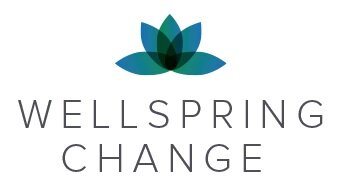In my earlier blog I touched on the themes of belonging; the ties that link us to people, groups, concepts and belief systems, and I want to share a story about the taming of wild elephants.
Wild elephant calves are taken at a young age from the herd and trained by elephant handlers to become working animals – carrying felled tree trunks through the forest. This blog isn’t about the ethics of this practice, I’m using it because the image has stayed with me for years, and it speaks of how we can become limited in our self-expression as human beings.
From their first days of captivity, in order to prevent them from escaping back into the jungle, the elephant’s back leg is tethered by a rope tied to a stake in the ground. There is no escape. Days flow into weeks, and weeks into months and this tying is a daily ritual. When they’re not working, the elephant is tied to its rope; it learns that it cannot break free. I’m assuming that it tries to break free initially, but it’s only a young elephant and has limited strength.
In time the elephant grows in strength, and eventually it becomes an adult – muscular and powerful. Yet the size of the rope that tethered the elephant calf remains the same into adulthood, in spite of the fact that it has the physical strength to break the rope.
So what has all this got to do with constellations? Constellations can be a helpful tool to shine a light on our relationships to people and systems. They can reveal hitherto unconscious ‘ropes’ that keep us stuck. Sometimes in a constellation, the very act of seeing things for the first time as they truly are, rather than how we’d imagined them to be, is a powerful first step in making a positive life-enhancing change.
Sometimes the insights in a constellation act like an imaginary wisdom whispering in our ear: ‘you can break that rope – it’s your choice…’
In constellations, these ropes are often referred to as ‘entanglements’, and they happen when the healthy flow of giving and receiving in relationships become distorted or when something or someone critical in any given system is excluded. Imagine from a very early age that someone learns that: “mummy doesn’t love me when I cry.” Their mother might well have had very valid reasons for being that way; she might herself have learned that crying was taboo, or she might have had an overwhelming mother that because of her own trauma could not be the parent, but was like a child herself. Whatever the reason, somewhere there was an entanglement that might go back generations.
One of the most graceful aspects for me in working with constellations is that there is truly no blame when we look with an open heart at the whole system in which everything is interconnected.
So back to “mummy doesn’t love me when I cry.” With that rope bound from childhood, our person might grow into adulthood suppressing tears, vulnerability and hurt feelings. They may unconsciously withdraw from intimacy in relationships that bring those feelings to the surface and feel threatening.
I want to close by saying that for me constellations are a wonderful tool that help us better understand where and how our entanglements plays themselves out in life. And from there, once we’ve spotted the patterns (or the ropes that tame our birthright of a life fully lived), we can start to make different choices. We know enough from neuroscience that our brains have an incredible capacity to forge new neural pathways, they can quite literally re-wire themselves.
Sad as the image of the elephant tethered to its rope might be, there is a more hopeful story.
Want to find out more…?
If you’re interested in coming to a workshop check out the upcoming ‘Landscapes of Change’ - Retreat Series, or if you’re new to constellations, take a look at my previous blog explaining the background to constellations, and how I work with clients in workshops.
If you want to discuss the possibility of organising a workshop with Marcos or if you’d just like to have an informal chat, please feel free to get in touch.


